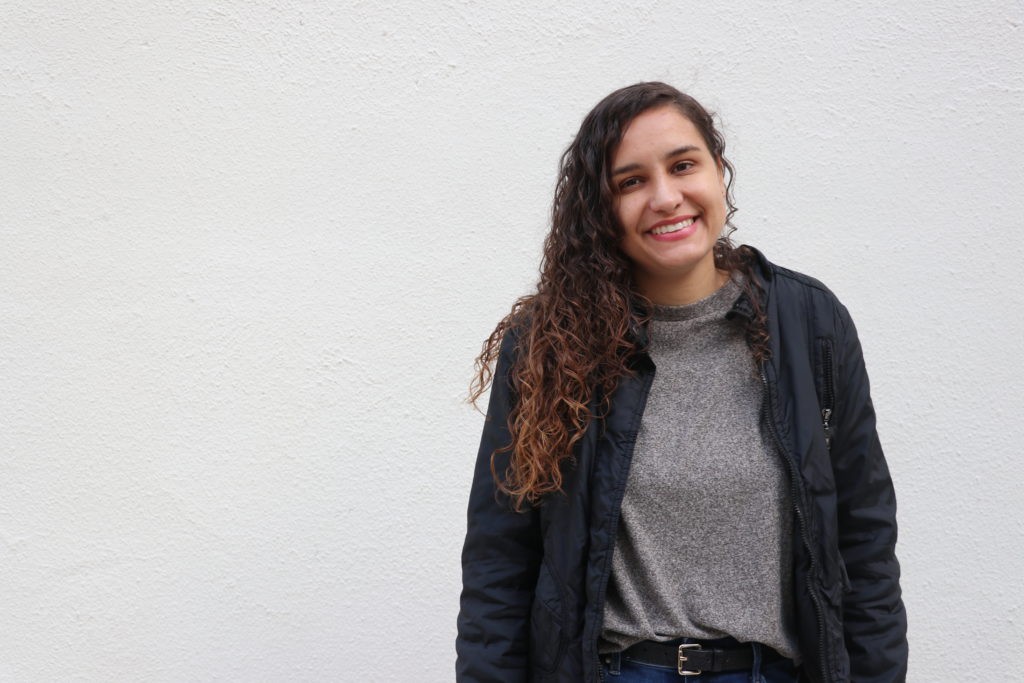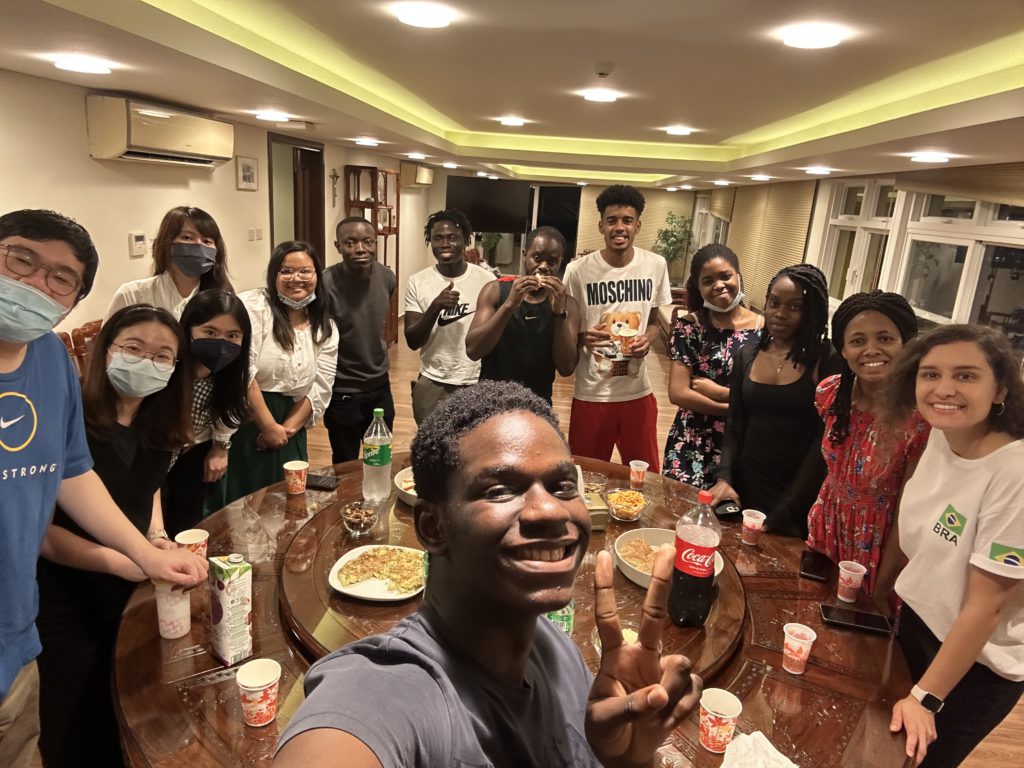Camila Macedo is the first reader in the Brazilian Lectorate Program in Macau. The initiative funds Brazilian scholars to work in foreign higher education institutions and promote the Portuguese language and Brazilian literature. For six months in the Region, she says the city is an important focus for the diffusion and promotion of the language in the world, as well as a strategic point for Brazil. In a next step, she plans to implement the CELPE-BRAS exam, a Portuguese language proficiency certificate for foreigners
-You are the first reader of the program in Macau. How would you describe your experience so far?
Camila Macedo – The opportunity to learn and learn more about teaching Portuguese to foreigners outside of Brazil has been incredible. I worked in Brazil for nine years in the extension courses of the Núcleo de Ensino de Português para Estrangeiros (NEPPE) of the University of Brasilia. However, I had students of different nationalities and was in an immersion context. My audience there was completely different from the one I have here at the University of São José (USJ). I love new challenges and, consequently, new learning. I can summarize by saying that I am very happy and grateful for this opportunity.
-Why did you choose to participate in the program and, consequently, choose Macau to promote the spread of the language?
C.M. – I have always dreamed of participating in the Lectorate Program. It has been in place since the 1950s and I believe that it is a desire of a large part of the Brazilian teachers who are dedicated to teaching Portuguese as a Foreign Language. My motivation for the Master’s degree was, precisely, to improve the curriculum to try for a place in the Program. In 2019, when the Ministry of Foreign Affairs launched the public notice with 18 countries, I identified myself more with the work activities in Macau and Peru. The requirements and the descriptions of the activities requested by the university were what I most enjoyed doing in Brazil: developing extracurricular linguistic and cultural activities. Another reason is that my other option was Peru, but I had already lived in Argentina and Spain. Asia was a place that I did not know yet and it would be a completely different experience from the previous ones, besides being in a region where one of the official languages is Portuguese.

-Why did the program start sending a reader to Macau?
C.M. – Macau is a very important place for the diffusion and promotion of the Portuguese language in the world. It is a strategic point for my country. For a long time Brazil would like to have a Brazilian representative here, since the Brazilian Consulate is in Hong Kong.
-What is the relationship between the Reader’s Program and the Guimarães Rosa Institute?
C.M. – The Guimarães Rosa Institute (IGR) was created on March 31, 2022, precisely to be responsible for promoting the Portuguese language, cultural diffusion and educational cooperation in the world. The Brazilian Lectorate already existed and was at the Cultural and Educational Department of the Ministry of Foreign Relations (MRE). Today, we have the IGR to establish a brand, strengthening the cultural foreign policy and encompassing everything related to the area.
-How would you describe your work in Macau?
C.M. – My work schedule is, first of all, whatever the university needs. I have hours dedicated to the classroom at USJ and another part of the time is for extra activities to promote Brazil and the language. I have proposed some extracurricular projects here at USJ, such as the Cultural Connections Project, where we give a monthly presentation about Brazil. Another activity is the Virtual Monitor, with the Brazilian teacher, Renata Silva, who is in Brazil, and supports the first year students of the Portuguese – Chinese Translation course who never had contact with the language before joining the course. I also promoted interviews with students from different Portuguese speaking countries and my second year students of the Writing in Portuguese course. I participated in the webinar “Encontro com o Brasil” at the X Latin America Festival in Macau on December 7th to talk about my country. I also participated in academic events, such as the II Conecta Leitores, which took place in Barcelona in October, and the VII Networking Points Meeting in Macau, organized by the Institute of Oriental Portuguese (IPOR) in November this year.
-Is Brazil represented in Macau? Does the local community know the culture?
C.M. – I believed that Brazil was represented by the main stereotypes: caipirinha, samba, dance, capoeira, soccer, carnival. I found out that my students did not know capoeira as I imagined (laughs), I learned that they think a lot about how dangerous Brazil is because of the news that arrive here. Another part of them don’t know much about the country, they had never had a Brazilian teacher. Here at USJ we are lucky, because we have many students from CPLP countries. In Macau there are several actions and institutions that promote the Portuguese language, such as the Macau Forum, which helps to spread the knowledge of Portuguese beyond Portugal. Portuguese is a pluricentric language, that is, it has more than one language management center, so the actions to show other varieties are very important. I intend to help in more integration activities between native Portuguese speakers and those interested in the language.
-Macau is a place that normally uses European Portuguese, which, for many people, is very different from Brazilian Portuguese. Do you recognize any difficulties in the integration?
C.M. – On a daily basis there are several words that I learn from my Portuguese colleagues. I believe that these differences enrich the language even more. I have started to make a glossary of words that I learn in European Portuguese that we don’t use in Brazil. When we speak in English, we usually do not focus on the differences between American and British in a negative way. However, in Portuguese, many people embrace the myth that there is one more right or one better than the other, and there is no such thing, because they are variations of the same language.

-Macau has the mission of being a platform between China and the Portuguese-speaking countries. In your opinion, has it done a good job? How can the program facilitate this process?
C.M. – I have participated in some events with this objective and I think that any actions with this purpose are extraordinary. We participate when we are inserted in the events, for example, in the X Latin America Festival in Macau we presented a little bit of Brazil. The Brazilian consulate in Hong Kong helped with whatever was possible and requested.
-How long will you stay in Macau?
C.M. – My contract is for two years and I have already been here for six months, so I still have a year and a half. In the Brazilian Lectorate, there is the possibility to renew for another two years. That is, a reader can be in the same edict for a maximum of four years.
-Is there a plan for the next step in Macau? How do you foresee the development of this program?
C.M. – The next step is to help implement the CELPE-BRAS exam, which is a certificate of proficiency in Portuguese for foreigners. The exam used to be applied by the University of Macau, but it hasn’t been applied in the last few years. I believe that it is very important to reapply it. I intend to continue doing cultural activities for those interested in the Portuguese language and Brazilian culture.



